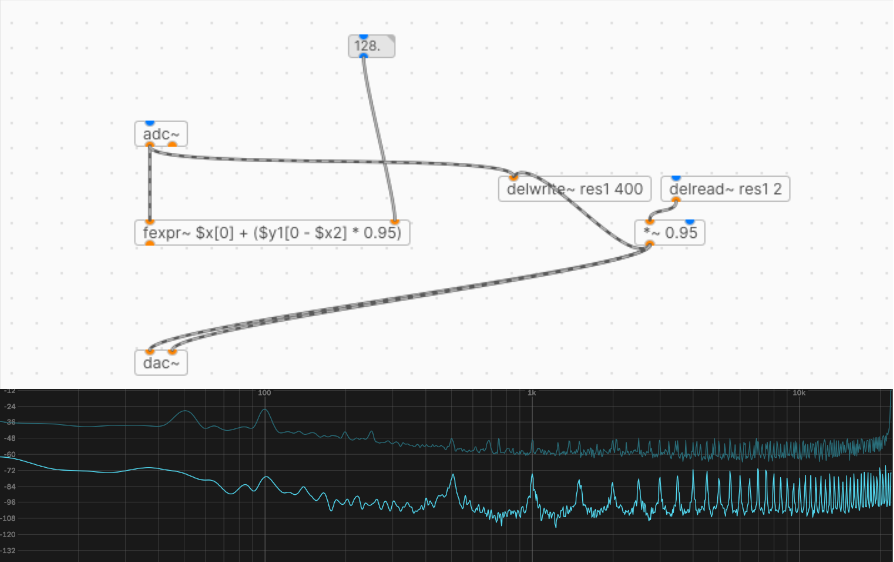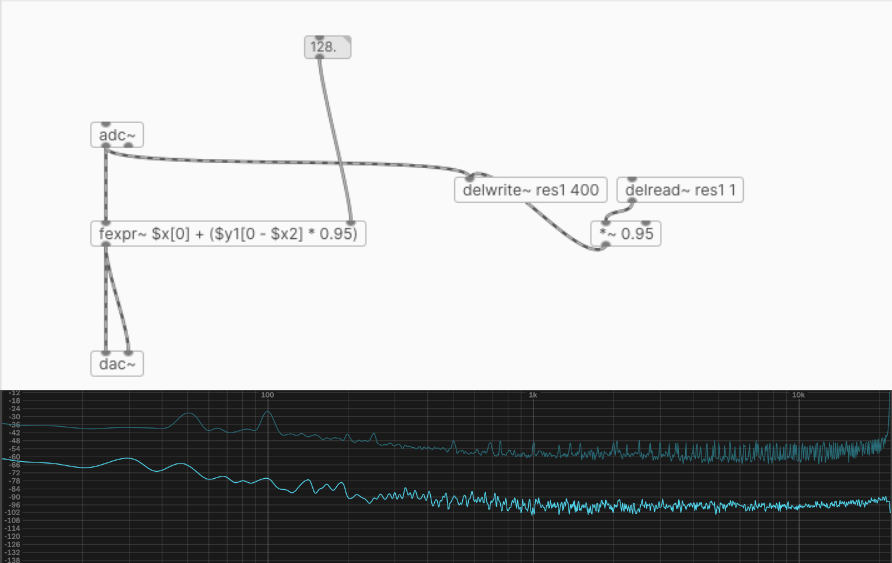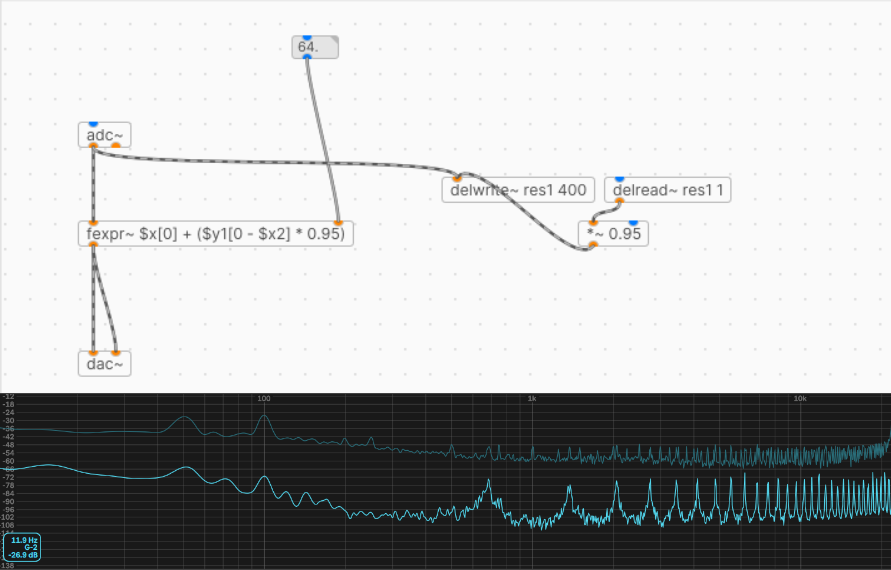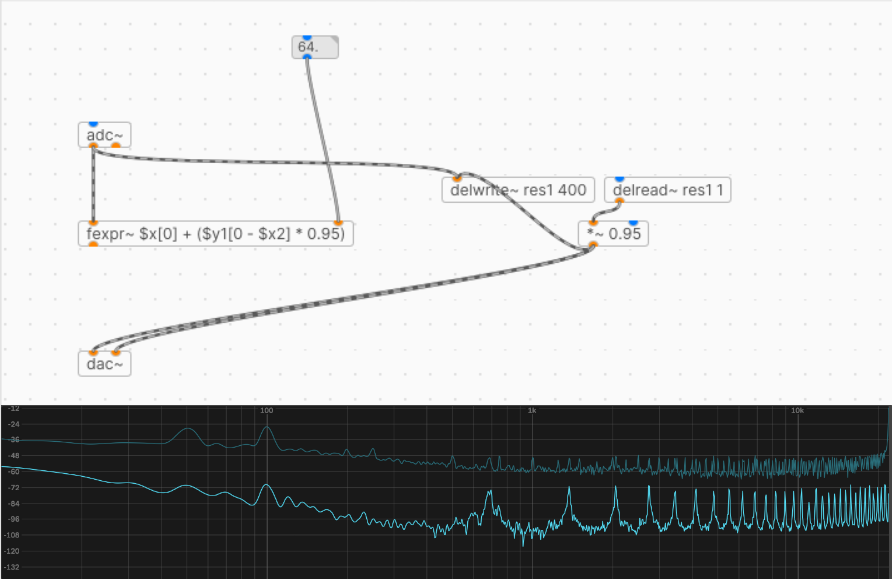-
reubenm
posted in technical issues • read moreahh I see that does make sense! I've just tried putting the fexpr~ in a subpatch with a larger block size and now i can get lower frequencies! I wonder what the difference in computational expense is with this method and the order forced delay line? I am quite new to all this stuff so I'm pretty ignorant when it comes to computer science.
-
reubenm
posted in technical issues • read morethese are some pictures with the pd patch and below a spectrogram so you can see what I mean




-
reubenm
posted in technical issues • read moreAnother aspect to the weirdness is that the drop off in resonance happens when the second input of fexpr~ is at around 64 which i guess is the same number of samples delread will process at once when delread is given a message of 1?
-
reubenm
posted in technical issues • read moreHello! I have noticed something a little bit weird trying to implement a karplus strong algorithm with fexpr~
I was previously using delwrite and delread with feedback and this worked fine up until delays of 1 milisecond. When i try to use fexpr~ for a per sample delay however the resonance of the karplus strong dies down as delay times get lower. interestingly the lowest pitch i am able to produce with this algorithm is about 660 hz which is roughly the same as the highest frequency with delwrite~ and delread~.
I have written in my fexpr~ object $x[0] + ($y1[0 - $x2] * 0.95)
I can't see why this would function any differently and yet it does?
I understand that it is possible to implement samplewise delay with subpatches and order forcing but i've never been able to get this to work properly.
